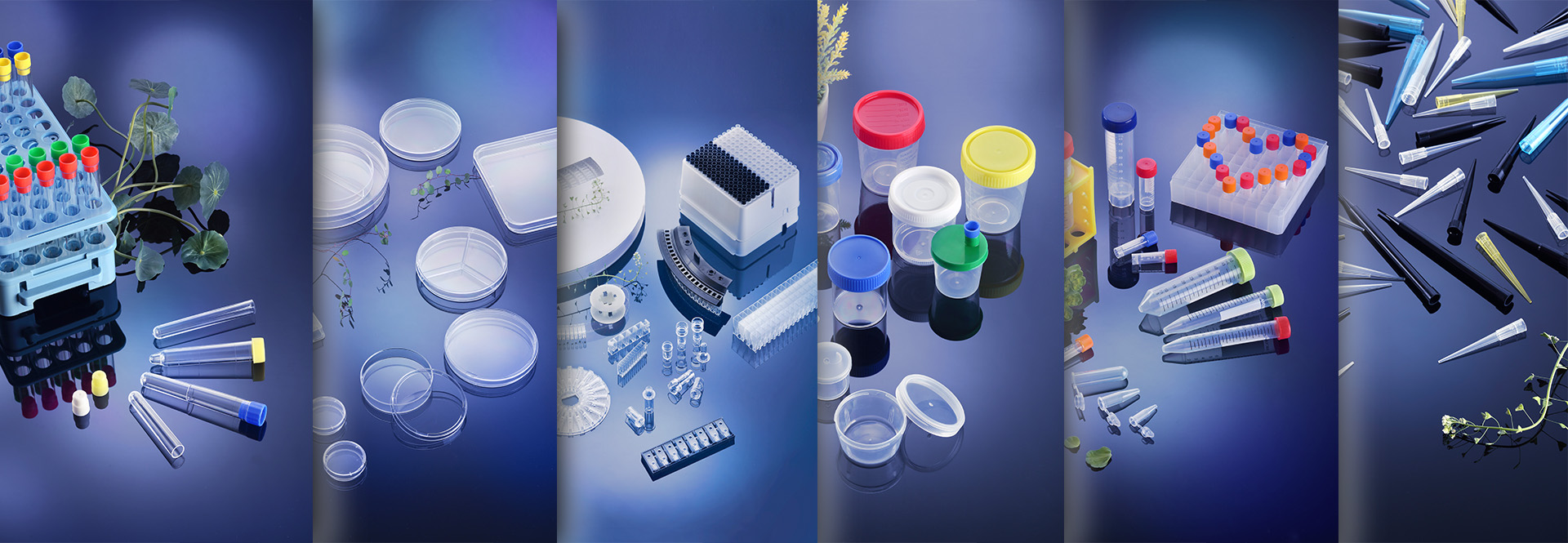Deep well plates are indispensable laboratory tools that offer a range of applications and features. In this article, we take a closer look at deep well plates and their crucial role in laboratory research. From sample storage and high-throughput screening to streamlining liquid handling processes, deep well plates play a significant role in enhancing research efficiency. Stay informed about the latest advancements in deep well plate technology and gain insights into how they continue to contribute to scientific advancements.

Item No | Description | Packing Info. | Qty./Case(pc) | Case Size(cm) |
H02 | 96 Square Well Deep Well Plate,1.6ml Square Wells | 24racks/box*4 | 96 | 41.5×37.5×32 |
H03 | 96 Square Well Deep Well Plate,2.2ml Square Wells | 24racks/box*4 | 96 | 41.5×37.5×32 |
H04 | 48 Square Well Deep Well Plate,4.6ml Square Wells | 10racks/box*5 | 50 | 50×29×24.8 |
Deep well plates have become an essential component of laboratory research, offering numerous applications and features that streamline experimental procedures. These plates, typically made of polypropylene, are designed with deep cavities, allowing for the storage and handling of larger sample volumes.
One of the primary applications of deep well plates is sample storage. With their spacious cavities and secure sealing system, deep well plates provide a reliable solution for preserving valuable biological samples. Whether it's for short-term storage or long-term archiving, deep well plates offer a controlled environment that protects samples from contamination and degradation. Moreover, their compatibility with various laboratory instruments ensures efficient and organized sample handling.
Another significant application of deep well plates is high-throughput screening (HTS). These plates can accommodate numerous samples, allowing researchers to simultaneously analyze multiple compounds and biological entities. Through high-throughput screening, scientists can quickly identify potential drug candidates, study protein-protein interactions, and accelerate genomics research. The ability to analyze larger sample volumes in parallel significantly expedites the screening process and enhances workflow efficiency.
Deep well plates also excel in streamlining liquid handling processes. They provide a reliable platform for precise and reproducible dispensing and transferring of liquids. Whether it's manual pipetting or automated liquid handling systems, deep well plates ensure accurate and consistent results, reducing errors and improving experimental reliability. This makes them an indispensable tool in various laboratory procedures, including dilution series, enzyme assays, and DNA extractions.
Advancements in deep well plate technology have further enhanced their utility and convenience. Some plates now come equipped with 2D barcodes, enabling automated sample tracking and traceability. Additionally, a wide range of well volumes and plate formats are available, catering to specific experimental needs and optimizing workflow efficiency.
In conclusion, deep well plates are invaluable assets in laboratory research. Their applications in sample storage, high-throughput screening, and liquid handling processes contribute significantly to research efficiency and productivity. With advancements in technology, deep well plates continue to evolve, offering improved features and compatibility with automated systems. Staying up-to-date with the latest advancements in deep well plate technology ensures researchers can maximize their potential and drive further scientific discoveries.

Contact: Neo
Phone: 008615867460640
E-mail: Info@Hwtai.com
Whatsapp:008615867460640
Add: Building 2, Xinmao Qilu Science Technology Industrial Park, Tianqiao District, Jinan City, Shandong Province,China.
We chat
